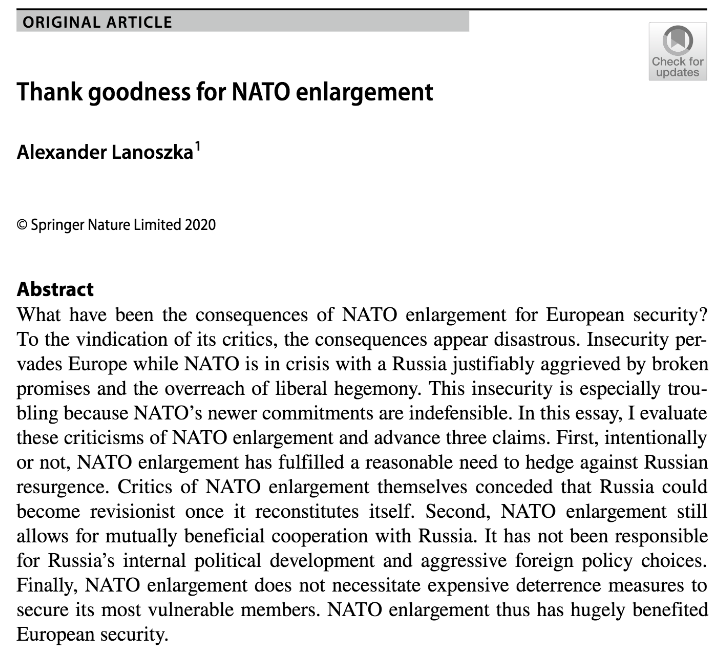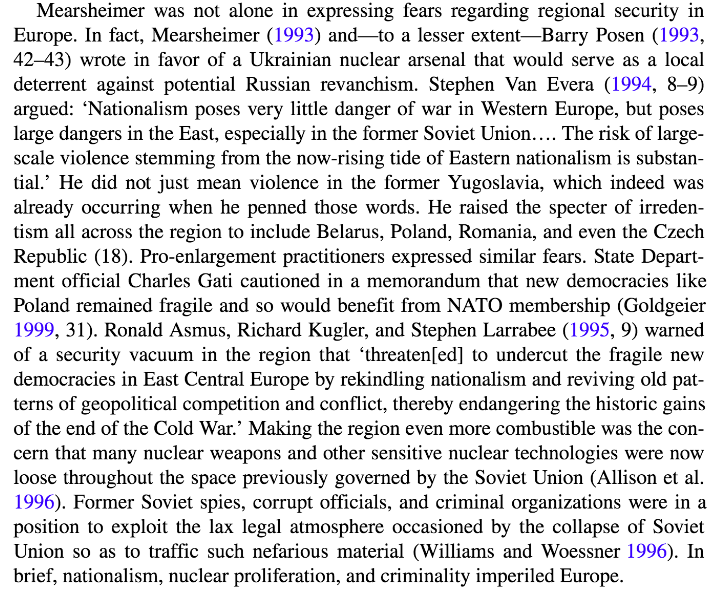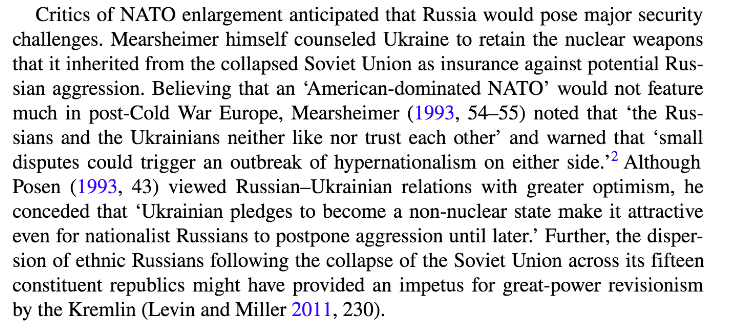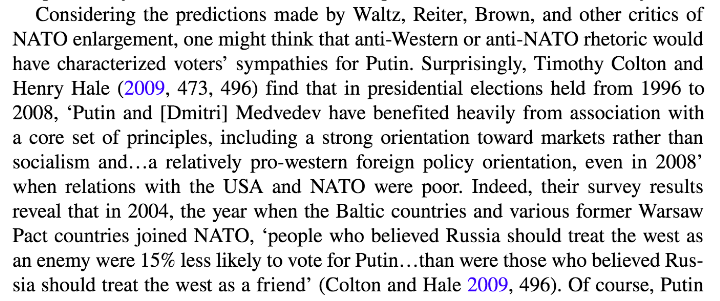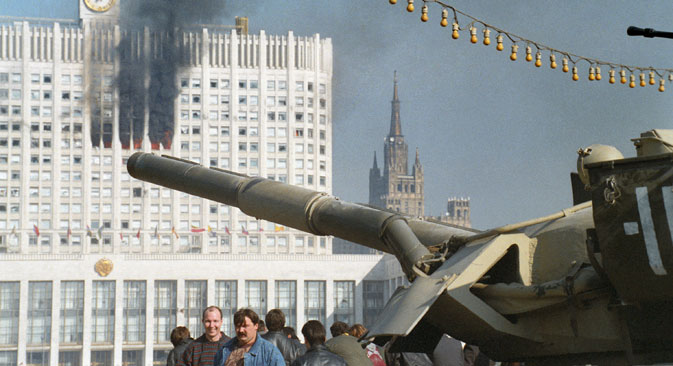It may be strange in April 2020 to highlight how European security has exceeded initial post-Cold War expectations. Alas my new @ip_palgrave essay argues that NATO enlargement has greatly benefited European security despite what many critics argue. THREAD. https://rdcu.be/b3sse ">https://rdcu.be/b3sse&quo...
This essay is part of a terrific special issue put together by @shifrinson and @JimGoldgeier (see thread below). I offer a much more positive assessment of NATO& #39;s role in Europe than what some other contributors provide. There& #39;s something for everyone! https://twitter.com/shifrinson/status/1236318404543463425?s=20">https://twitter.com/shifrinso...
I make three basic claims in this essay:
1: NATO enlargement has fulfilled a reasonable need to hedge against Russian resurgence;
2: It still allows for mutually beneficial cooperation with Russia;
3: It doesn& #39;t require expensive deterrence measures to secure vulnerable allies.
1: NATO enlargement has fulfilled a reasonable need to hedge against Russian resurgence;
2: It still allows for mutually beneficial cooperation with Russia;
3: It doesn& #39;t require expensive deterrence measures to secure vulnerable allies.
On 1, I first revisit predictions made in the early 1990s. Many scholars envisioned a grim future for post-Cold War Europe, a continent that would be much beset by loose nukes, violent nationalism, interstate war, and transnational crime, at least in its centre and east.
Chief among them was John Mearsheimer. He warned of the destabilising effects that the withdrawal of the Soviet Union would have for Central and Eastern Europe.
See his classic "Back to the Future" piece from 1990 (link: https://www.jstor.org/stable/2538981 ).">https://www.jstor.org/stable/25...
See his classic "Back to the Future" piece from 1990 (link: https://www.jstor.org/stable/2538981 ).">https://www.jstor.org/stable/25...
Interestingly, Mearsheimer and other realists did believe that Russia could become a major long-term threat to Ukraine. After all, he favoured Ukraine having its own nuclear weapons (link: https://www.jstor.org/stable/20045622 ).">https://www.jstor.org/stable/20...
Others more admitted that being under direct military threat from Russia could eventually justify enlargement. But if Russia could resurge and seek hegemony, as per, let& #39;s say, the offensive realism that Mearsheimer advances in his other writings, then why wait to enlarge NATO?
I would note here also that this criterion--funny enough--would thus serve to justify bringing in Ukraine and Georgia.
I think we have a good understanding as to how applying this formula more broadly in Europe would have generated much more insecurity than what we see today.
I think we have a good understanding as to how applying this formula more broadly in Europe would have generated much more insecurity than what we see today.
On 2, to begin with, many critics believed that NATO enlargement would strangle Russian democracy in the cradle in the 1990s by emboldening nationalists. Yet the data do not confirm this prediction, which does seem prima facie correct.
Survey evidence has revealed that voters liked Putin because they saw him as ... pro-Western. Indeed, if NATO is ever discussed in the context of Russia& #39;s internal political development, it is with respect not to enlargement per se but mostly to the 1999 Yugoslavia air campaign.
Still, the West was not entirely innocent with regards to Russia& #39;s political development. Insisting on shock economic reforms made what would have been a bad decade even worse. Yet Boris Yeltsin firing tanks to solve the 93 constitutional crisis wasn& #39;t great for democracy either.
Even so, there has been cooperation between Russia and the United States despite NATO enlargement, however it might have ended. For example, Waltz worried that NATO enlargement would make Russia disinclined to cut its nuclear forces, and yet it did with New START. ¯\_(ツ)_/¯
On 3, suffice it to say in this long thread, though there are gaps in NATO& #39;s overall posture, one need not replicate the Western Military District in the Baltic region to deter Russia. One can argue Russia resorts to & #39;gray-zone tactics& #39; precisely because it is afraid of Art 5.
In brief, given all the stark warnings made about post-Cold War Europe in the early 1990s, I think (NATO) Europe has largely done well for itself since. Yes, things could have gone better (e.g. Yugoslavia) but such events were already taking place when those warnings were made.
And some bad things that have taken place more recently (e.g., war between Russia and Ukraine) were in fact anticipated by those in the 90s who were later critical of "liberal hegemony." One need not invoke "NATO enlargement" to explain them. I& #39;d say it& #39;s a bad explanation. FIN.
P.S. All this was written before COVID-19. If anything, what is interesting about revisiting 1990s debates is how many smart people got things wrong when writing amidst a time of profound change. Be wary of confident op-ed writers describing the future.

 Read on Twitter
Read on Twitter